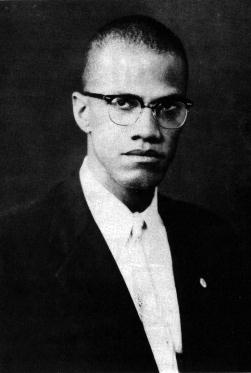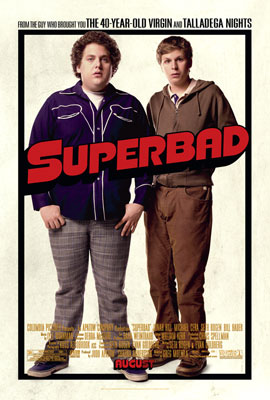Monday, June 21, 2004
Bloody Sunday
The thing about living where I live, the two major movie theatres basically get in the mainstream international crap that entices teenagers (currently showing in the 7 screen Lotte Cinema: THE DAY AFTER TOMORROW (retitled merely TOMORROW in Korea), TROY and the horribly unfunny SHREK 2 on three screens on it’s own) or the prestige Oscar winners (and then, that’s only hit and miss – there was no MYSTIC RIVER shown, for example). So to watch anything outside these parameters requires commuting 50 minutes into Seoul, or just being lazy about it – my favored option – and waiting for the DVD to turn up in my local rental store ($1.30 New Zealand for a new release, can’t complain). Occasionally, though, a trip is warranted and worth it.
What I didn’t know about the situation in Northern Ireland (and the Republic of Ireland, for that matter) could fit into the space required to house Clive Woodward’s ego – i.e. I knew next to nothing. In fact, most of what I know now comes from a late night cram session last night inspired by a remarkable film I saw yesterday, and aided by this simple, clear rundown of Irish history.
BLOODY SUNDAY, made by relatively new film-maker Paul Greengrass (who has a history of anti-authoritarian films), makes no effort to orientate this infamous day in Irish history – January 30th, 1972 – with regards to Northern Ireland’s internal upheaval at the time or in the past. However, just a cursory glance at the parade of treaties, political parties, unions, movements, marches, riots, terrorist attacks and sanctions makes it clear why: to be made aware of the astoundingly complex political maneuvering is to lose sight of the inherently personal loss associated with the day. A political history of Northern Ireland is a tale for another time, another medium; here Greengrass is more interested in both the human dynamics and hoisting the blame on the English for what transpired. (Indeed, the complexities of the politics have tripped up other accomplished film-makers like Neil Jordan and his dull, lifeless MICHAEL COLLINS – even the title screams stupor. Of course, anyone who tries to get away with casting Julia Roberts in a period film, despite the fact that she fits the era about as well as a Shakespeare using a laptop, is tempting fate in the first place).
This is not to say that Greengrass ever intended for the audience to have it easy, to have Bloody Sunday play out as a slick melodrama. No, he may spare us the head-spinning political backdrop, but he doesn’t spare us the head-spinning. Right from the beginning, the exclusive use of a hand-held camera, the naturalistic acting and the dedication to period accuracy throws us right in with the people of Derry, demands us to at least recognize, and hopefully relate to, the mix of emotions that swirled around everyone involved. There is no hiding behind an aloof regard for cinematic style, the primary focus is the story, and we are not allowed to forget it. In fact, we are asked, spiritually at least, to join it. Of course, the amped cinema-verite is a style of its own, to be analyzed and dissected like any other, but its very use in this context, for this story, relegates those critical instincts behind the immediacy of the narrative situation, the sheer energy of the people involved. It’s a brilliant stylistic choice that doesn’t revel in its own existence (unlike, for example, a lot of David Fincher’s work, which is great for completely different reasons). You have to shudder at the thought of stately compositions with a tastefully unnecessary score in the hands of, say, a Michael Caton-Jones or a John Madden, begging for us to feel something with clichéd technique, when it is patently clear that just being there would be enough.
Of course, with the film throwing its hat so firmly into the ring marked docudrama, and with so many people to keep track of (apart from the sublime James Nesbitt, there are a handful of other people with roughly the same screentime), the film does tend to stray on the literal side, meaning that there’s very little to reflect back on once it’s over, except for the remnant pall of tragedy. Repeat viewings may be more of a chore, once the physics of the situation is mastered. However, there is one thing that may not make this necessarily so.
Nesbitt. He’s one of those typical British actors who you recognize, but can’t for the life of you picture where you saw him (for the record, I saw him in WELCOME TO SARAJEVO, WAKING NED and JUDE…..thank you, IMDB). Here, he is simply outstanding as the march organizer Ivan Cooper, tip-toeing the line between frazzled tension, outward optimism, genuine warmth and numb horror, without ever dipping into hey-look-at-me-emote showmanship, which would have sunk the whole enterprise. The way he bustles around the streets, trying to drum up support while at the same time trying to dampen the rowdier elements of the crowd, the way he tries and fails to use his slight frame to impose some order on those already throwing rocks, this is an actor completely in control of everything he says and does. The whole performance seems to be leading up to his last statement, which is chilling in comparison to how full of energy and naïve optimism he was in the lead up to the tragedy. When asked of he had anything to say to the young men bound to join the IRA in the wake of the massacre, Cooper has nothing to offer except a defeated utterance that in light of recent events, he was in no position to offer them any counseling whatsoever. Not only is it a film about the tragic loss of so many loved ones in a divided town, but it may well be just as much about the loss of one man’s fight for what’s right.
What I didn’t know about the situation in Northern Ireland (and the Republic of Ireland, for that matter) could fit into the space required to house Clive Woodward’s ego – i.e. I knew next to nothing. In fact, most of what I know now comes from a late night cram session last night inspired by a remarkable film I saw yesterday, and aided by this simple, clear rundown of Irish history.
BLOODY SUNDAY, made by relatively new film-maker Paul Greengrass (who has a history of anti-authoritarian films), makes no effort to orientate this infamous day in Irish history – January 30th, 1972 – with regards to Northern Ireland’s internal upheaval at the time or in the past. However, just a cursory glance at the parade of treaties, political parties, unions, movements, marches, riots, terrorist attacks and sanctions makes it clear why: to be made aware of the astoundingly complex political maneuvering is to lose sight of the inherently personal loss associated with the day. A political history of Northern Ireland is a tale for another time, another medium; here Greengrass is more interested in both the human dynamics and hoisting the blame on the English for what transpired. (Indeed, the complexities of the politics have tripped up other accomplished film-makers like Neil Jordan and his dull, lifeless MICHAEL COLLINS – even the title screams stupor. Of course, anyone who tries to get away with casting Julia Roberts in a period film, despite the fact that she fits the era about as well as a Shakespeare using a laptop, is tempting fate in the first place).
This is not to say that Greengrass ever intended for the audience to have it easy, to have Bloody Sunday play out as a slick melodrama. No, he may spare us the head-spinning political backdrop, but he doesn’t spare us the head-spinning. Right from the beginning, the exclusive use of a hand-held camera, the naturalistic acting and the dedication to period accuracy throws us right in with the people of Derry, demands us to at least recognize, and hopefully relate to, the mix of emotions that swirled around everyone involved. There is no hiding behind an aloof regard for cinematic style, the primary focus is the story, and we are not allowed to forget it. In fact, we are asked, spiritually at least, to join it. Of course, the amped cinema-verite is a style of its own, to be analyzed and dissected like any other, but its very use in this context, for this story, relegates those critical instincts behind the immediacy of the narrative situation, the sheer energy of the people involved. It’s a brilliant stylistic choice that doesn’t revel in its own existence (unlike, for example, a lot of David Fincher’s work, which is great for completely different reasons). You have to shudder at the thought of stately compositions with a tastefully unnecessary score in the hands of, say, a Michael Caton-Jones or a John Madden, begging for us to feel something with clichéd technique, when it is patently clear that just being there would be enough.
Of course, with the film throwing its hat so firmly into the ring marked docudrama, and with so many people to keep track of (apart from the sublime James Nesbitt, there are a handful of other people with roughly the same screentime), the film does tend to stray on the literal side, meaning that there’s very little to reflect back on once it’s over, except for the remnant pall of tragedy. Repeat viewings may be more of a chore, once the physics of the situation is mastered. However, there is one thing that may not make this necessarily so.
Nesbitt. He’s one of those typical British actors who you recognize, but can’t for the life of you picture where you saw him (for the record, I saw him in WELCOME TO SARAJEVO, WAKING NED and JUDE…..thank you, IMDB). Here, he is simply outstanding as the march organizer Ivan Cooper, tip-toeing the line between frazzled tension, outward optimism, genuine warmth and numb horror, without ever dipping into hey-look-at-me-emote showmanship, which would have sunk the whole enterprise. The way he bustles around the streets, trying to drum up support while at the same time trying to dampen the rowdier elements of the crowd, the way he tries and fails to use his slight frame to impose some order on those already throwing rocks, this is an actor completely in control of everything he says and does. The whole performance seems to be leading up to his last statement, which is chilling in comparison to how full of energy and naïve optimism he was in the lead up to the tragedy. When asked of he had anything to say to the young men bound to join the IRA in the wake of the massacre, Cooper has nothing to offer except a defeated utterance that in light of recent events, he was in no position to offer them any counseling whatsoever. Not only is it a film about the tragic loss of so many loved ones in a divided town, but it may well be just as much about the loss of one man’s fight for what’s right.
Comments:



















Post a Comment